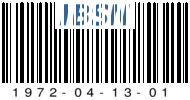I’m a Google Waver Now

Photo by Yme BosmaYes, My invite came this last night. Between bits of work I found a little bit of time to play with it a few minutes. And I am not (yet) very impressed. Sure it works and sure it’s fast. Sure I can create a wave (which isn’t much more than a simple document) and have a conversation. But there are problems that wave doesn’t solve yet, promises that aren’t kept.
Wave should be all about communication, but it is very limited in the sense that I can’t communicate without the boundaries of wave and without the (very small) group of people I found on wave so far. If this is to surpass e-mail, the least it could do is allow me to converse with those who still have nothing else…
And then, I’m not even talking other communication platforms. I want to interact with microblogging services like Twitter and Identica and (google owned) Jaiku. I want to socially network with Facebook, Hyves and (google owned) Orkut. I want to manage my calendar and todos in Outlook, Remember the Milk and Google Calendar (also Google owned). I want to interact with bulletin boards, I want to import data from RSS feeds, I want to export WordPress Posts (and not just embed a wave that consequently nobody can see without a wave account). I want work with data (like spreadsheets and databases) and not just text and images and I want to draw pictures and graphs like I can on a whiteboard.
I haven’t found any good ways of doing those things with wave yet… Maybe it’s early days, maybe I’ll have to wait, maybe I have to team up with folks with strong development skills and make these dreams come true. I don’t know. For now it remains a nice toy rather than a very useful application for my work. A hello world testwave I created I embedded in a sandboxwordpressinstall I created at geirriteerd.nl. Have a look and (probably) see (nothing?)
To get the invite I begged and participated in a small contest and won. I made the promise to write about my experiences (which I’m doing now and will do in the future). One of the things I want to investigate is how this new tool can be useful in the real world as a communication channel between organisations and people, especially in an e-Government setting. So that’s what I’ll be looking into in coming months. However, limited as it is right now (including my inability to invite people myself) the added value isn’t as big as I hoped.
I guess that between hype and hope a lot of land lays barren…
Please respond to this post or contact me on Google Wave (wDOTkossenATgooglewaveDOTcom, yeah, I don’t like WHAM (wave spam))







